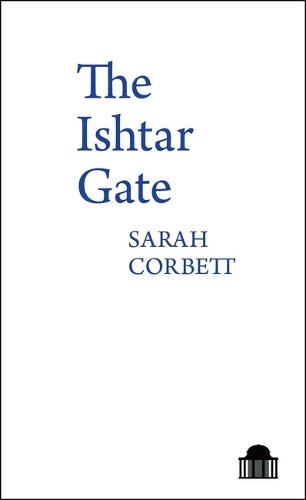Overview
Self and history collide, selves fracture, the flag is divided, monuments collapse. In her sixth collection, Sarah Corbett considers the fragments we might hold against dissolution, whether personal, national, or global. Midnight in Leningrad, 1940, Anna Akhmatova waits for a poem to arrive, in her hand an egg; on the 30th anniversary of the fall of the Berlin Wall, a writer recalls her breakdown as a student in 1989. In the pandemic year an isolated artist communes with a tree; visitors to an art gallery are led on a journey of rebirth; missives find their way back to us from a flooded world. The book opens with an invocation to the goddess Ishtar, and closes with the goddess rising from a spring thirty years in the future, ‘the world’s unspoken desire’ to be reborn. A series of ekphrastic ‘interventions’ respond to 20th century European cinema, the work of Serbian performance artist Marina Abramović, and consider what art can offer in face of the predicaments we find ourselves in. Summoning the ‘Red horse of time, white horse of poetry, blue horse of dreams,’ poetry’s answer is the search for connection, love; and for presence, where we might meet each other, transcendent.
Full Product Details
Author: Sarah Corbett
Publisher: Liverpool University Press
Imprint: Liverpool University Press
ISBN: 9781836244578
ISBN 10: 1836244576
Pages: 66
Publication Date: 28 April 2025
Audience:
General/trade
,
General
Format: Paperback
Publisher's Status: Active
Availability: In Print

This item will be ordered in for you from one of our suppliers. Upon receipt, we will promptly dispatch it out to you. For in store availability, please contact us.
Reviews
'Sarah Corbett’s The Ishtar Gate is a book of separations, distances, longings and intense snatches of observation. It is full of breathless excitement about the conditions of a natural world that is also ourselves and yet on the edge of vanishing. Light pulses through the book desperately seeking its place. Its three sections work through images from Kieslowski’s Wender’s and Tarkovsky’s cinema of memory, Marina Abramovic’s art interlaced with a month-by-month calendar of trees and weathers, and Corbett’s own projection of a future without birds, all space, all sensation, but songless. The book itself is never songless.' George Szirtes 'This is an ambitious and radiant gathering of poems, a sonata in three movements inspired by Kieslowski’s great film cycle. Corbett begins by invoking Ishtar, whose journey between the underworld and the living world stands as a symbol of rebirth and renewal for both peoples and lands. A meditation on motherhood, played out over a calendar year of separation, forms the central section of the book, opening to the final sequence set in an unknown future – a fragmented lament of loss. Throughout, the endeavors of women artists such as Akhmatova and Abramović stand as acts of recovery and reconciliation, when only words can wake our failing spirits. Corbett is at the height of her powers in weaving together these complex and vital themes.' Tamar Yoseloff
Author Information
Sarah Corbett has published five collections of poetry, including A Perfect Mirror (Pavilion, 2018) and the verse novel And She Was (Pavilion, 2015). Her work has been shortlisted for the T.S. Eliot and Forward poetry prizes. In 2022 she directed the Sylvia Plath Literary Festival and co-edited After Sylvia: Poems and Essays in celebration of Sylvia Plath (Nine Arches Press, 2022).




